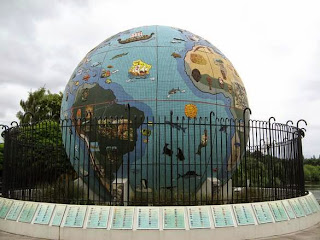This just in: Saving the planet would be cheap; it might even be free. But will anyone believe the good news?
I've just been reading two new reports on the economics of fighting climate change: a big study by a blue-ribbon international group, the New Climate Economy Project, and a working paper from the International Monetary Fund. Both claim that strong measures to limit carbon emissions would have hardly any negative effect on economic growth, and might actually lead to faster growth. This may sound too good to be true, but it isn't. These are serious, careful analyses.
But you know that such assessments will be met with claims that it's impossible to break the link between economic growth and ever-rising emissions of greenhouse gases, a position I think of as "climate despair." The most dangerous proponents of climate despair are on the anti-environmentalist right. But they receive aid and comfort from other groups, including some on the left, who have their own reasons for getting it wrong.
Where is the new optimism about climate change and growth coming from? It has long been clear that a well-thought-out strategy of emissions control, in particular one that puts a price on carbon via either an emissions tax or a cap-and-trade scheme, would cost much less than the usual suspects want you to think. But the economics of climate protection look even better now than they did a few years ago.
On one side, there has been dramatic progress in renewable energy technology, with the costs of solar power, in particular, plunging, down by half just since 2010. Renewables have their limitations — basically, the sun doesn't always shine, and the wind doesn't always blow — but if you think that an economy getting a lot of its power from wind farms and solar panels is a hippie fantasy, you're the one out of touch with reality.
On the other side, it turns out that putting a price on carbon would have large "co-benefits" — positive effects over and above the reduction in climate risks — and that these benefits would come fairly quickly. The most important of these co-benefits, according to the I.M.F. paper, would involve public health: burning coal causes many respiratory ailments, which drive up medical costs and reduce productivity.
And thanks to these co-benefits, the paper argues, one argument often made against carbon pricing — that it's not worth doing unless we can get a global agreement — is wrong. Even without an international agreement, there are ample reasons to take action against the climate threat.
But back to the main point: It's easier to slash emissions than seemed possible even a few years ago, and reduced emissions would produce large benefits in the short-to-medium run. So saving the planet would be cheap and maybe even come free.
Enter the prophets of climate despair, who wave away all this analysis and declare that the only way to limit carbon emissions is to bring an end to economic growth.
You mostly hear this from people on the right, who normally say that free-market economies are endlessly flexible and creative. But when you propose putting a price on carbon, suddenly they insist that industry will be completely incapable of adapting to changed incentives. Why, it's almost as if they're looking for excuses to avoid confronting climate change, and, in particular, to avoid anything that hurts fossil-fuel interests, no matter how beneficial to everyone else.
But climate despair produces some odd bedfellows: Koch-fueled insistence that emission limits would kill economic growth is echoed by some who see this as an argument not against climate action, but against growth. You can find this attitude in the mostly European "degrowth" movement, or in American groups like the Post Carbon Institute; I've encountered claims that saving the planet requires an end to growth at left-leaning meetings on "rethinking economics." To be fair, anti-growth environmentalism is a marginal position even on the left, but it's widespread enough to call out nonetheless.
And you sometimes see hard scientists making arguments along the same lines, largely (I think) because they don't understand what economic growth means. They think of it as a crude, physical thing, a matter simply of producing more stuff, and don't take into account the many choices — about what to consume, about which technologies to use — that go into producing a dollar's worth of G.D.P.
So here's what you need to know: Climate despair is all wrong. The idea that economic growth and climate action are incompatible may sound hardheaded and realistic, but it's actually a fuzzy-minded misconception. If we ever get past the special interests and ideology that have blocked action to save the planet, we'll find that it's cheaper and easier than almost anyone imagines.
Friday, September 19, 2014
Krugman - better than a free lunch
It's true that the universe doesn't provide free lunches. But when you've been acting insanely stupidly, STOPPING feels like a free lunch and more, a lunch you get paid to eat. Since driving the planet's climate stability into the ditch is insanely stupid and destructive of our own health, now and for centuries to come, it is true that there's a free lunch to be had by getting smart on energy use and climate disruption.
This is all a good topic for the Sunday party this Sunday, 9/21, at Riverfront Park at 2 p.m.
Subscribe to:
Post Comments (Atom)





No comments:
Post a Comment